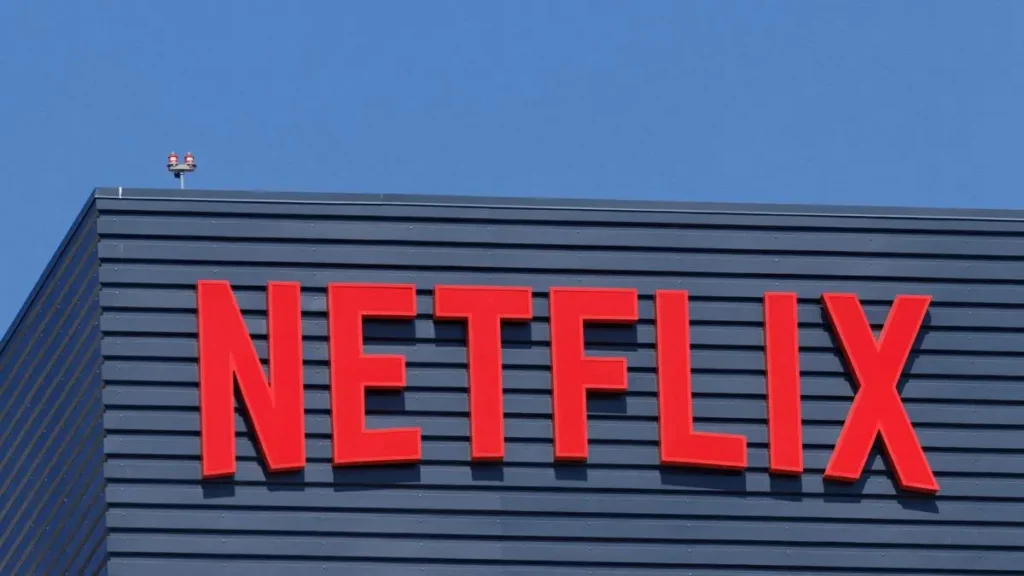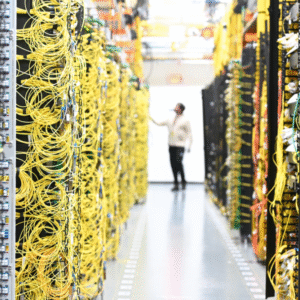Netflix has begun testing a new feature powered by OpenAI technology to enhance its content discovery capabilities. This AI-driven search aims to make it easier for users to find relevant shows and movies, reducing browsing time and increasing satisfaction. As artificial intelligence continues to transform digital platforms, this move reflects Netflix’s focus on innovation to stay ahead in the competitive streaming market.
Meanwhile, discussions between the United States and China about trade policies could impact the tech industry broadly. Talks are ongoing about tariff exemptions for smartphones, computer hardware, and semiconductors, which could influence the entire tech supply chain, including platforms like Netflix.
The Rise of AI-Powered Content Discovery in Streaming Services
In recent years, streaming platforms have faced the challenge of content overload. With thousands of titles available, users often struggle to find something they truly want to watch. Traditional recommendation systems, while helpful, often fall short in understanding viewer preferences in depth.
Netflix’s new feature, leveraging OpenAI’s large language model, is set to offer more refined results by understanding natural language and user intent more effectively. Instead of just recommending content based on previous views, this AI can interpret vague or conversational search inputs like “a thriller set in the 80s with a strong female lead” and return accurate suggestions.

This advancement is part of a broader trend of AI-powered content discovery in streaming services, where artificial intelligence is being used to improve personalization, engagement, and retention.
Potential Benefits for Users and the Streaming Industry
The integration of OpenAI into Netflix’s search system may lead to several key advantages:
- Faster content access: Viewers will spend less time searching and more time watching.
- Better personalization: AI can learn from user interactions to improve suggestions over time.
- Enhanced voice search: Future versions might combine voice recognition with AI search, creating a hands-free content discovery experience.
For Netflix, this could result in higher user satisfaction and increased time spent on the platform—two critical metrics for success in the streaming business.
As other streaming platforms like Amazon Prime Video, Disney+, and Max also explore similar AI tools, AI-powered content discovery in streaming services may soon become a standard feature.
U.S.-China Trade Talks and Their Impact on Tech Supply Chains
While Netflix focuses on AI-driven innovation, the broader tech world is facing uncertainty due to ongoing U.S.-China trade tensions. Recent discussions have included potential tariff exemptions for critical electronic goods such as smartphones, laptops, and semiconductors.
These components are essential not only to hardware companies but also to streaming services that rely on them for delivering content. A significant portion of smart TVs, mobile devices, and streaming boxes are manufactured in or contain parts from China.
If exemptions go through, it could stabilize pricing and supply chains for these goods. However, if tariffs remain or increase, companies may face higher production costs, leading to higher prices for consumers or reduced profitability for tech firms.
According to Reuters and Bloomberg, industry groups are lobbying for a balanced trade approach to avoid disruption in this already complex supply chain:
AI and Geopolitics: A Dual Force Shaping the Future of Streaming
As Netflix leads with AI-powered content discovery in streaming services, the geopolitical environment continues to shape the tools and technologies that make streaming possible. AI relies heavily on high-performance computing, powered by advanced chips often produced with global cooperation. Trade policies that affect chip availability or pricing could slow down AI innovation in consumer tech.
The future of content platforms like Netflix will likely be shaped by how well they balance internal innovation with external supply risks. If AI helps make streaming more accessible and personalized, and trade policies support steady tech production, the result could be a more efficient and enjoyable user experience worldwide.
Streaming platforms will need to stay agile, adapting to both technological advancements and global economic shifts.
Conclusion
Netflix’s move to test an OpenAI-powered search feature signals a new era in user experience optimization. As the company pushes toward smarter and faster AI-powered content discovery in streaming services, it is setting a precedent for how entertainment platforms can evolve with technology.
At the same time, global trade developments—particularly those between the U.S. and China—underscore the importance of stable tech supply chains in supporting this digital future.
With artificial intelligence and international relations both playing critical roles, the coming months will be pivotal for companies in the streaming space.









